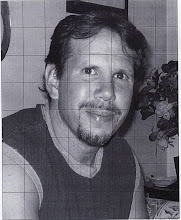
(Part 3 of an Intellectual Autobiography that was done for an Understanding Media Class assignment)
Then, by a series of contiguities, I would read three books that would triangulate themselves for me into a vision of the world as not only purposive but vaster than I had ever imagined. The first was Hegels’ Philosophy of History that would indicate an evolving historical spirit which his dualist orientation could only stand witness to. The second link would be Ken Wilber’s Up From Eden which hermeneutically linked this evolutionary spirit to human consciousness itself and diligently hop-frogged back and forth between superstructure and base , not the superstructure of “hegemony” but that of a godhead that existed long before capitalism. The third book was The Essential Rudolf Steiner that would lead to a path that would continue to inform me for the next fifteen years.. Steiner’s Philosophy of Freedom responded to Kant, Hegel and Schelling with a form of epistemological praxis that would lay the groundwork for a movement that would manifest itself in pedagogy, architecture, history and the arts. The center of Steiner studies in Dornach, Switzerland would be named the “Goetheanum” in reference to Steiner’s reading of Goethe’s scientific writings that he would preside over at the Goethe Archive in Weimar. Steiner’s voluminous writings would continue to cross-inform me at every subsequent stage. It most certainly led me to the works of comparative religion and mythology of Frazer, Joseph Campbell, Huston Smith, ,Jung , the Gnostics, Cabbalists and Neo-Platonists. The other pole of my intellectual life would ironically be dominated by Marx and the Critical Theorists, Herbert Marcuse, Erich Fromm, Horkheimer and Adorno, Debord, The structuralist post-Freudians and Jungians would both continue to inform me. To my mind, there were antinomies but not irreconcilabilities. I was a Neo-Marxist in this world and a Christian Contemplative in the other. I stood strung across the same chasm as Benjamin, the dichotomy of theological revolution and materialist political praxis that would inform his concept of the dialectical image. The link between Zeitalter (empirical history) and Weltalter (cosmic history) would indeed have been revolutionary praxis, but it would have been praxis as a gesture of consciousness itself. The “lightening flash” of the dialectical image is the satori of the Zen Koan. Adorno is correct in his disdain over the l ate drafts of the Passagen-werk for reasons that he did not completely understand. When one understands the source of the dialectical image’s revelation-one no longer questions the autonomy of the subject as a moment of dialectical transition. What becomes clearer to me with the works of Georg Kuhlewind, specifically his Becoming Aware of the Logos and From Normal to Healthy is now being reinforced by Roland Benedikter, His lengthy recent essay “Postmodern Spirituality: The Rise of Proto-Spirituality in the Late Works of Some Leading Postmodern Thinkers” gave voice to lingering thoughts and feeling that I had been having for a long time.
ate drafts of the Passagen-werk for reasons that he did not completely understand. When one understands the source of the dialectical image’s revelation-one no longer questions the autonomy of the subject as a moment of dialectical transition. What becomes clearer to me with the works of Georg Kuhlewind, specifically his Becoming Aware of the Logos and From Normal to Healthy is now being reinforced by Roland Benedikter, His lengthy recent essay “Postmodern Spirituality: The Rise of Proto-Spirituality in the Late Works of Some Leading Postmodern Thinkers” gave voice to lingering thoughts and feeling that I had been having for a long time.
 ate drafts of the Passagen-werk for reasons that he did not completely understand. When one understands the source of the dialectical image’s revelation-one no longer questions the autonomy of the subject as a moment of dialectical transition. What becomes clearer to me with the works of Georg Kuhlewind, specifically his Becoming Aware of the Logos and From Normal to Healthy is now being reinforced by Roland Benedikter, His lengthy recent essay “Postmodern Spirituality: The Rise of Proto-Spirituality in the Late Works of Some Leading Postmodern Thinkers” gave voice to lingering thoughts and feeling that I had been having for a long time.
ate drafts of the Passagen-werk for reasons that he did not completely understand. When one understands the source of the dialectical image’s revelation-one no longer questions the autonomy of the subject as a moment of dialectical transition. What becomes clearer to me with the works of Georg Kuhlewind, specifically his Becoming Aware of the Logos and From Normal to Healthy is now being reinforced by Roland Benedikter, His lengthy recent essay “Postmodern Spirituality: The Rise of Proto-Spirituality in the Late Works of Some Leading Postmodern Thinkers” gave voice to lingering thoughts and feeling that I had been having for a long time.The films and work of Alejandro Jodorowsky regalvanized my belief in film as a form of initiatory mandala, and that the virtual milieu could ultimately take on the some of the modalities of a sacred text. I believe that film could facilitate the evolution of consciousness itself and that we are only beginning to understand it. I have seen films and read books that have changed my life, that have made me more expansive, more self-aware. The ethos of 12-Step Recovery emboldened my belief in artistic and political praxis.. I am an optimist. Even in a world where Disneyworld gets closed down for Miley’s 16th birthday, I believe that there is still hope.


No comments:
Post a Comment